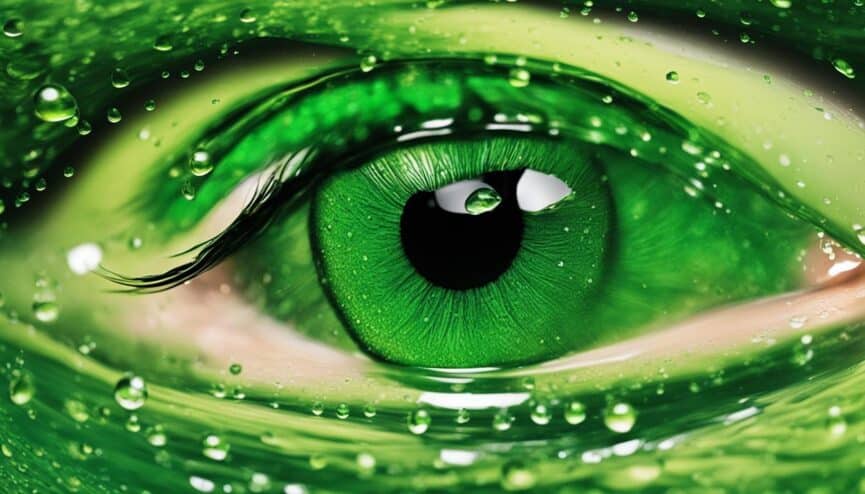What Are Wet Dreams in Islam?
Have you ever woken up feeling a bit surprised, with strange dreams and unexpected sensations? Many people go through what’s known as wet dreams. They might seem odd or embarrassing. But, they are totally normal for both men and women in Islam.
Fatima, a 16-year-old Muslim girl, wakes up one morning confused. She had a clear dream and found her pajamas damp. She wonders if this is okay. Does this ring a bell?
Let’s clear up some wrong ideas about wet dreams in Islam. They aren’t seen as bad or shameful in Islamic beliefs. Instead, they’re a sign of growing up. Even Prophet Muhammad (SAW) said women have wet dreams just like men. This shows it’s a normal thing for everyone.
Knowing the Islamic view on wet dreams can ease confusion or guilt. We’re going to explore what wet dreams mean in Islam, Islamic rules on them, and why it’s important to talk openly about this topic, especially with women and girls.
Key Takeaways:
- Wet dreams are a normal part of life for both genders in Islam and don’t mean there’s anything wrong.
- Seeing them as a puberty sign and not something shameful is part of Islamic teachings.
- It’s vital to talk clearly and supportively about wet dreams in Islam. This helps in educating daughters about this natural process.
- Wet dreams don’t define anyone’s moral character but are a natural human phenomenon.
- Getting rid of wrong beliefs and giving correct, supportive info is key to overcoming any embarrassment about wet dreams in Islam.
Understanding Wet Dreams from an Islamic Perspective
In Islam, wet dreams are a natural way to release sexual energy, created by Allah. They happen during sleep, when we have no control over our actions. For this reason, Islam does not blame anyone for having them. Seen as a part of growing up, wet dreams are also mentioned in the Quran. They don’t mean someone is sexually deviant or strange.
Having a wet dream should be seen as something normal, not linked to shame or guilt. It’s a part of how our bodies work naturally. Wet dreams are a healthy way to fulfill sexual desires without doing anything forbidden (haram).
Changes happen in our bodies during puberty, including wet dreams. Prophet Muhammad (SAW) spoke about them and advised on how to clean ourselves afterwards. This cleaning (ghusl) is for spiritual purity. It’s not a punishment but a way to stay clean and pure.
- Wet dreams are not sinful. They occur in men and women naturally, marking growth.
- Islamic scholars offer guidance on wet dreams, using Quran and hadith. They teach us to understand wet dreams without judging them morally.
- Feeling ashamed or guilty about wet dreams is unnecessary. They don’t change our faith or spiritual progress.
- Learning about wet dreams from reliable sources helps clear up any false beliefs.
Learning about wet dreams through Islam helps us understand our bodies without guilt. Islam’s approach to wet dreams is balanced and kind, guiding us to see them as natural.
Rulings on Wet Dreams for Women in Islam
In Islam, there are certain rules for women about wet dreams. If a woman sees water (discharge) after a wet dream, she should take a ghusl. A ritual bath. This may happen even if she doesn’t remember the dream. But, if she’s not sure if she had an orgasm, she doesn’t have to take a ghusl. This is unless she’s quite certain she experienced it.
These rules guide women on when to perform ghusl for wet dreams. They help women keep their religious duties and understand natural body processes. It’s crucial for women to know these rules well. They should ask experts if they have doubts or questions about their situations.

Talking accurately about wet dreams in Islam is key to clear up any wrong ideas. Learning about this empowers women with the knowledge to perform religious duties. And respects their bodies’ natural ways. It’s wise to consult reputable Islamic scholars or knowledgeable community members for proper understanding. They can provide correct rulings on wet dreams in Islam.
Educating Women and Girls about Wet Dreams
As a mother or husband, educating yourself about wet dreams in Islam is essential. You can then offer accurate, supportive information to your daughters. Understanding the Islamic view helps address any concerns they may have.
Mothers should talk openly with their daughters about wet dreams and puberty. These talks are pivotal. Girls can learn from their mothers in a safe, trusted space.
Teaching your daughters about wet dreams from an Islamic viewpoint is beneficial. This ensures they understand these experiences are natural and normal. Such knowledge fosters a positive body attitude and boosts confidence through adolescence.
To help the discussion, you can use Islamic texts like the Quran and Hadith. These provide deep insights into wet dreams in Islam. Sharing this helps your daughters handle wet dreams knowledgeably.
Opening Up Dialogues and Providing Accurate Information
Open communication is crucial when talking about sensitive issues like wet dreams. Create a space where your daughters can freely ask questions. Always base your answers on Islamic teachings.
By doing this, you prepare your daughters for puberty and its experiences, including wet dreams. Clearing up any wrong ideas helps them maintain a healthy mindset and avoids shame.
You are the main guide for your daughters on Islamic teachings about wet dreams. Learn more, have open talks, and give them the supportive information they need.
Together, mothers and husbands can ensure daughters get the insight needed. They can confidently understand wet dreams from an Islamic stance as they grow into adulthood.
Wet Dreams and Puberty in Islam
Wet dreams are a natural sign of puberty in Islam. The term “al-hilm” is used in the Quran to mean puberty and wet dreams. This shows that wet dreams are a normal part of growing up. However, scholars don’t all agree if wet dreams alone start a girl’s religious duties like fasting and wearing hijab.
Some scholars count wet dreams as a puberty sign, but others say menstruation is key. How wet dreams are seen can change based on Islamic thought. Families should talk to informed scholars to get the right advice.
In Islam, being responsible and accountable is very important. To make sure you follow religious rules right, always seek true knowledge. Asking trusted sources for guidance is vital to live by Islam’s teachings correctly.

Addressing Misconceptions about Wet Dreams in Islam
Many people misunderstand wet dreams in Islam, thinking they’re wrong or sinful. But Islam sees them as a natural body function. They’re part of being human.
The Prophet Muhammad (SAW) gave advice on managing wet dreams. He made it clear that anyone can have them. This shows us that wet dreams happen to everyone, regardless of gender.
Wet dreams don’t mean someone is immoral. They’re simply a way our bodies deal with sexual energy. People can’t control them because they happen while we’re asleep.
Clearing up these wrong ideas helps everyone understand wet dreams better in Islam. This way, we can get rid of any embarrassment or guilt linked to them.
Importance of Proper Education and Support
Talking about wet dreams in Islam is vital. It is essential for parents, especially mothers, to educate their daughters. They should provide accurate info on wet dreams, puberty, and Islamic teachings. This knowledge helps girls see wet dreams as a normal part of growing up.
Parents help remove shame around wet dreams by offering the right guidance. They can show that these are natural and taught in Islam. This makes girls feel comfortable and supported during this life stage. It’s crucial for parents to be understanding and reassure their daughters. They need to know wet dreams are normal and don’t make them impure.
Proper education helps tackle wrong ideas about wet dreams. Parents can give their daughters the tools to feel confident. By understanding the Islamic view on wet dreams, girls can have a healthy attitude towards their sexual growth.








